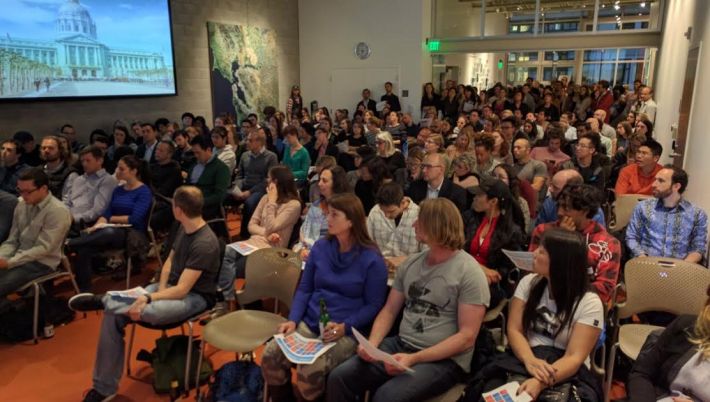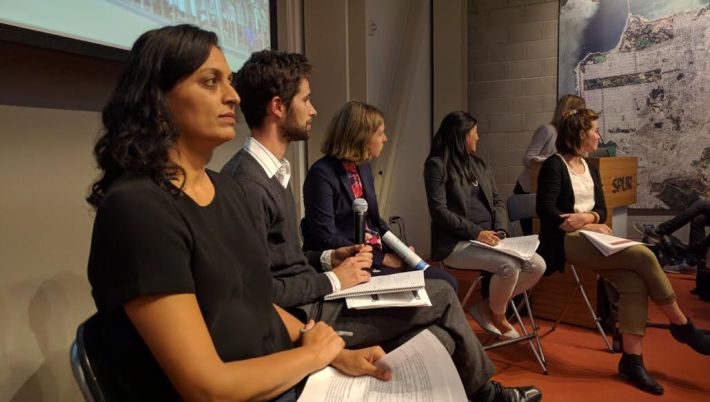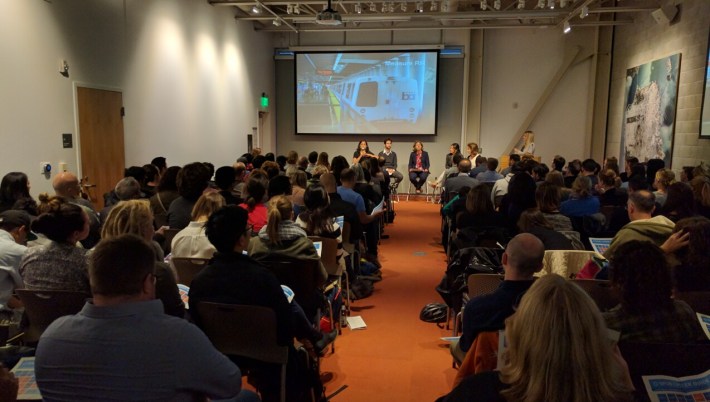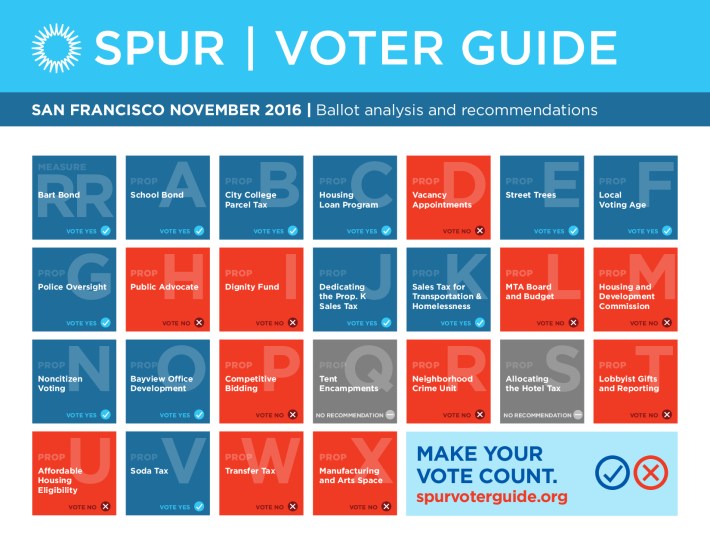
Yesterday evening, over 220 people squeezed into the San Francisco Bay Area Planning and Urban Research Association's (SPUR) downtown S.F. location to hear the organization's policy experts explain which ballot measures they are endorsing. With 25 measures on the San Francisco ballot this November 8, each of the six SPUR experts spent just a few minutes on each decision--and it still took nearly two hours to get through them all.
Thankfully, they also offered bottles of beer at the door.
Here's a sampling of some of the most Streetsblog-relevant "yes" recommendations:
Measure RR (for "Railroad")
SPUR started with Measure RR, the $3.5 billion regional bond measure to update, repair and replace all of BART's aging infrastructure. "Obviously, we say vote 'yes'" said Ratna Amin, SPUR's Transportation Policy Director. She spoke about the Washington D.C. Metro, which is about the same age as BART--and has suffered serious breakdowns as a result of deferred maintenance. "We don’t want to go down that road." She praised the bond for offering some monies for studying a second set of BART tubes, which she described as "dreamy things." Streetsblog, of course, agrees that RR should be a "yes," and officially endorsed it earlier this week. This could be a tough one, as it's a dedicated tax and therefore requires two-thirds of all votes in the three-county BART District (San Francisco, Alameda, and Contra Costa) to pass.

Measures K and J (money for homeless services, transit, and safe streets):
These two measures would go to fund homeless services, transportation, and Vision Zero goals. They are written in a way that gets around the two-thirds threshold for a dedicated sales tax, and each requires a simple majority to pass. K increases the effective sales tax in San Francisco by 0.75 percent, from 8.75 to 9.25 percent (the math works out because a previous sales tax expires concurrently). Prop. J, meanwhile, is a city charter amendment that dedicates money from the general fund to homelessness and transportation programs. Taken together, that means $95.5 million will go to San Francisco transportation in the first year. "It protects against future cuts, with eighteen percent going to infrastructure and the Muni fleet, escalators, rails, wires... nine percent for optimization and expansion, twelve percent for Vision Zero, bike lanes, driver education," explained Amin. " This will close a $6 billion gap in our transportation needs between now and 2030."
Proposition E (for "Tree")
Laura Tam, Sustainable Development Policy Director, discussed Proposition E, which transfers responsibility for maintaining street trees to the city. This measure pays for the costs through a $19 million set-aside from the general fund, adjusted annually. "Currently it’s inconsistent," said Tam. "Seventy percent of trees are the responsibility of the [adjacent] property owner and thirty percent are maintained by the city." But, she added, it's often difficult to know which ones fall under which umbrella, which results in many trees dying because of lack of maintenance. "E recognizes that this is bad policy," she said.

It was obvious from the discussion that SPUR's experts had done their homework. Streetsblog encourages its readers to follow their recommendations, especially on the decisions specified above. For the full slate of SPUR recommendations, including a few undecideds, check out its voter guide. Or follow the chart below:

As to the rest of the ballot, SPUR also has the right idea--it's best combined with beer.
For more events like these, visit SPUR’s events page.





